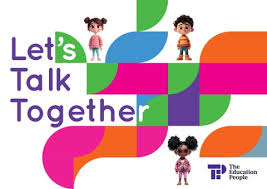The Vital Role of Education in Empowering People

The Education of People: A Vital Component of Society
Education plays a crucial role in shaping individuals and societies. It is a powerful tool that empowers people, broadens their horizons, and opens up a world of opportunities. From early childhood to adulthood, education is a lifelong journey that enriches minds and transforms lives.
One of the key benefits of education is its ability to foster critical thinking and problem-solving skills. By acquiring knowledge and developing analytical abilities, individuals are better equipped to navigate the complexities of the modern world and make informed decisions.
Furthermore, education promotes social cohesion and unity by fostering understanding, empathy, and respect for diversity. Through education, people learn about different cultures, traditions, and perspectives, leading to greater tolerance and acceptance within communities.
Education also serves as a pathway to economic prosperity. By acquiring relevant skills and qualifications, individuals enhance their employability and career prospects. A well-educated workforce is essential for driving innovation, productivity, and sustainable economic growth.
Moreover, education is a fundamental human right that should be accessible to all. It has the power to break the cycle of poverty, empower marginalised groups, and promote social justice. Investing in education is not only an investment in individual potential but also in the future well-being of society as a whole.
In conclusion, the education of people is paramount for personal development, societal progress, and global advancement. By recognising the importance of education and investing in lifelong learning opportunities, we can create a more inclusive, equitable, and prosperous world for all.
Understanding the Role and Offerings of The Education People: FAQs
- What do the education people do?
- Are CPD courses free?
- What is CPD in education?
- Who owns the education people?
What do the education people do?
The role of education people encompasses a wide range of responsibilities aimed at promoting and enhancing the educational experience for individuals of all ages. Education professionals, such as teachers, administrators, and support staff, play a vital role in creating a conducive learning environment, facilitating knowledge acquisition, fostering critical thinking skills, and nurturing personal development. They design and deliver curriculum content, assess student progress, provide guidance and support to learners, collaborate with parents and communities, and contribute to the overall growth and success of students. Education people are dedicated to empowering individuals through learning and equipping them with the skills and knowledge needed to thrive in an ever-changing world.
Are CPD courses free?
When it comes to Continuing Professional Development (CPD) courses, the availability of free options varies depending on the provider and the specific course. Some CPD courses may indeed be offered free of charge by certain institutions, organisations, or online platforms as part of their commitment to professional development and lifelong learning. However, it is important to note that many CPD courses may require payment of a fee to access the content, resources, and certification. Individuals seeking CPD opportunities are encouraged to research different providers, explore available options, and inquire about any associated costs before enrolling in a course.
What is CPD in education?
Continuing Professional Development (CPD) in education refers to the ongoing process of enhancing and updating the knowledge, skills, and expertise of educators and professionals within the field of education. CPD activities are designed to support individuals in staying current with best practices, trends, and innovations in teaching and learning. By engaging in CPD, educators can improve their effectiveness in the classroom, adapt to changes in educational policies and technologies, and ultimately provide high-quality education to students. CPD is essential for promoting lifelong learning and continuous improvement among teachers and educational leaders.
Who owns the education people?
The ownership of education lies within the collective responsibility of society as a whole. While individuals have a personal stake in their own learning and development, the broader community, including governments, educational institutions, teachers, parents, and stakeholders, shares the responsibility for ensuring access to quality education for all. Education is a public good that benefits individuals and society alike, and it is essential for fostering a knowledgeable and skilled population capable of contributing to the betterment of society. By working together to support and invest in education, we can collectively own and uphold the value of learning as a fundamental right and cornerstone of progress.
